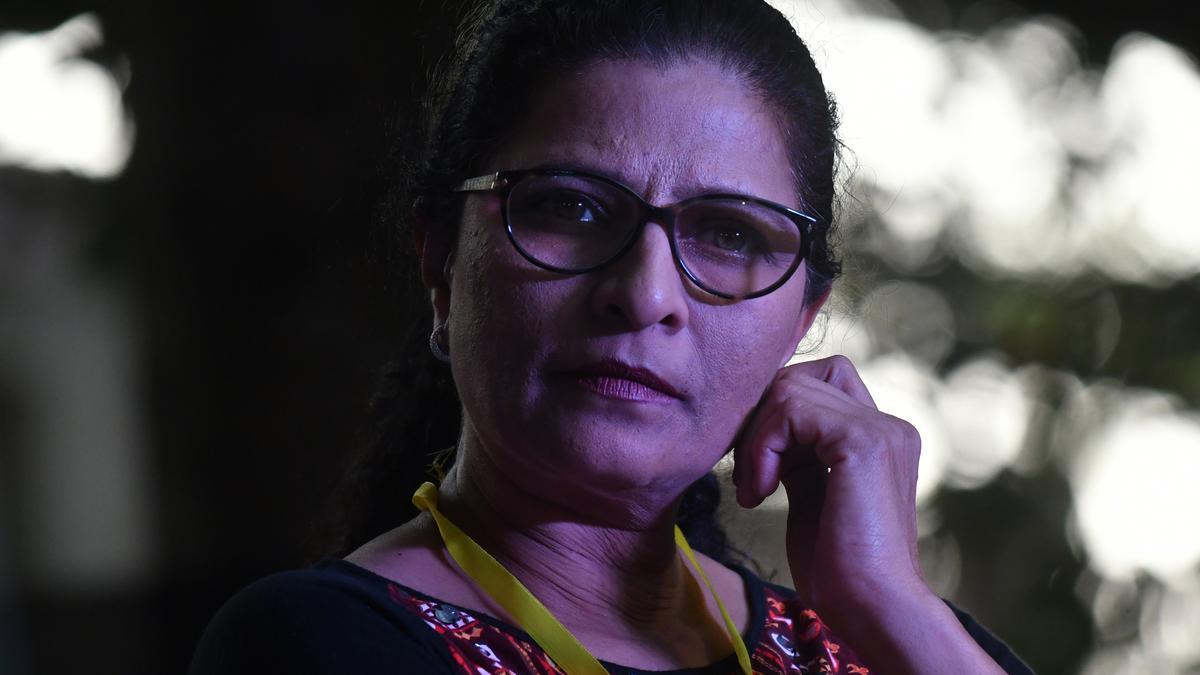
Two weeks after the K Hema Committee report sent shockwaves across several Indian film industries, artistes from the Kannada film industry (KFI) have responded to the ongoing issue in unison. In the wake of actor Sruthi Hariharan’s call for the establishment of a similar panel in Sandalwood, members of the group Film Industry For Rights and Equality (FIRE) have rallied together, urging the Karnataka government to form a committee led by a retired judge to investigate and address the myriad challenges faced by women, including sexual harassment, within the industry.
FIRE, which was established during the #MeToo movement in 2018 following Sruthi’s allegations against actor Arjun Sarja, is a non-profit organization created under the Societies Act with the explicit purpose of combating sexual harassment and the casting couch culture in the film industry. Led by filmmaker Kavita Lankesh as its president, and with actor Chetan Ahimsa serving as secretary, FIRE has been at the forefront of this advocacy.
In a significant move on Wednesday, September 4, 2024, FIRE submitted a meticulously detailed letter to Chief Minister Siddaramaiah. The letter urgently called for “comprehensive measures needed to create a safe and equitable working environment for all women in the industry.” This 153-member panel boasts several prominent names, including actors such as Sudeep, Ramya, Kishore, Vinay Rajkumar, Sruthi Hariharan, Shraddha Srinath, Pooja Gandhi, Aindrita Ray, Diganth Manchale, Chaitra J Achar, Samyukta Hegde, and filmmakers such as B Suresha, Mansore, Jayatheertha, K M Chaitanya, and Pawan Kumar.
“There has been a longstanding issue of harassment within our industry,” stated Kavitha Lankesh. “Those who refused to comply with the arbitrary demands of influential figures often found themselves ostracized. Women who dared to challenge these injustices risked losing their career opportunities. Sruthi Hariharan’s case is a prime example of this,” she added.
Despite the intensity of the accusations and the media attention, the case against Arjun Sarja was dismissed by the police three years later due to insufficient evidence. “There have been numerous instances where women have voiced their grievances, but the industry heavyweights have silenced them. Legal battles for these women often become drawn out ordeals, impacting their professional lives,” noted Kavitha.
FIRE has advocated for a “thorough investigation into the systematic issues faced by women in KFI, including sexual harassment.” Additionally, the organization has called for the “development of policies to ensure a healthy and equitable work environment for women in the industry.”
The letter strongly proposed the appointment of a retired judge, preferably from the High Court or the Supreme Court, who has consistently shown a commitment to gender justice throughout their career, to lead this new committee.
. FIRE has demanded immediate governmental intervention to address these critical issues affecting women in the Kannada film industry.
Across the broader Indian film landscape, there has been a similar response to the Hema Committee report. Allegations of sexual harassment have also heavily impacted the Malayalam film industry, and notable figures from the Tamil, Telugu, and Hindi film industries have voiced their support for safer working conditions for women in the film sector.
Cinematographer Preetha Jayaraman, who has built a significant part of her career in the Kannada film industry, highlighted the rampant misuse of power by those in influential positions. “Despite working on professional film sets that provide basic necessities for women, harassment is still a pervasive issue, especially for actresses and junior artistes,” said Preetha, a member of FIRE. “Many are aware of how production executives mistreat actresses and perpetuate these issues. It is imperative that we adopt a zero-tolerance policy towards any form of unfair expectations placed upon women,” she emphasized.
Author and screenwriter Sandhya Rani pointed out that the harassment women face in the film industry has always been a well-known secret. “This issue has always been the elephant in the room. Only after the release of the Hema Committee report has there been a transparent discussion about it,” she remarked.
She further explained that the unique working environment of film sets, which do not operate on fixed schedules or guidelines, leaves women acutely vulnerable. “Men in powerful positions bend the rules to suit their interests, often crossing the line. That is why we see those accused of misconduct continue working, while those who challenge them end up being sidelined,” Sandhya stated.
Kavitha Lankesh also stressed the importance of treating everyone equally on film sets. “I have heard numerous stories of women being compelled to work long hours, even during their menstrual periods. The treatment of women and junior artistes is a crucial indicator of a film set’s safety,” she concluded.
As the demand for a probe into these systemic issues gains momentum, the industry and audience alike await the Karnataka government’s response, hopeful for a safer and more equitable future for women in the Kannada film industry and beyond.












